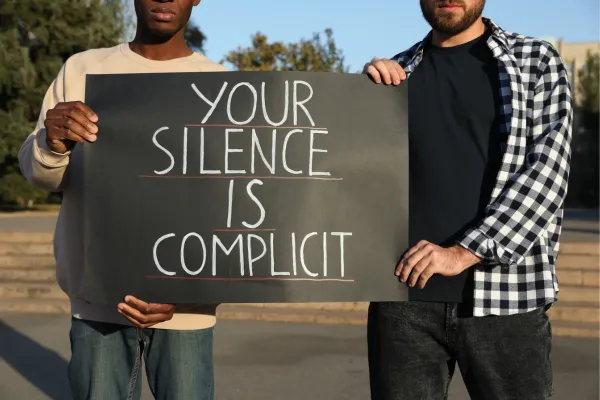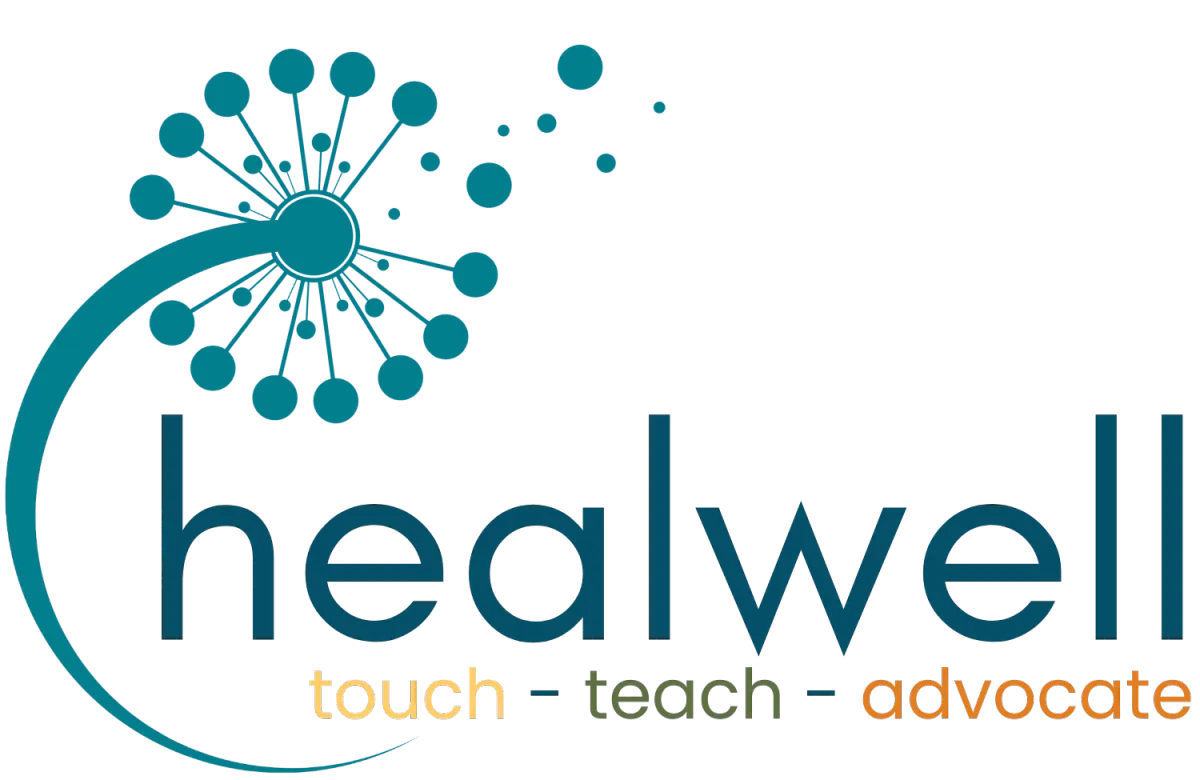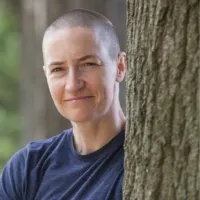Our Blog

We Are Not Exempt
In the time since early March, we have been brought face-to-face with two serious diseases. One, COVID-19, is spread through droplets. The other, racism, is spread through ignorance and fear. Both spread easily and often without notice and both result in disproportionate suffering in the Black community.
We can change stop the spread of both of these diseases, but let’s talk about racism and how we’ll end it.
Making the necessary changes in our world will require an abiding patience, a willingness to give each other second and third chances, an openness to being wrong over and over. My white friends, we must own how much wrongness has already gone before. Hundreds of years of wrongness. The inner, personal work required to achieve the necessary cultural change will be a heavy lift from which we cannot shrink away.
According to data from the US Census Bureau (July 2019), it depends how you slice it, but white people make up between 60 and 77% of the total US population. “Black or African American alone” people represent 13.4% of the total US population. In contrast, whites make up more than 72.9% of the massage therapy industry, while Black people represent barely 5%.1, 2
When I talk with people about what led them to pursue a career in massage, I hear about direct and positive experiences with massage therapy. There are likely a few different reasons for the disproportionate representation of Black people in the massage profession, but I think the lack of such positive experiences is a key factor.
As a white person and healthcare provider, I can’t truly take the perspective of a person of color without taking a serious look at myself and at the actions of white people over centuries. When I take that look, it’s ugly. I have to take a deep breath and be with that ugliness. I must resist the urge to explain it as “history” or anything that puts distance between me and racial inequity. Between racism and the way I live my life and do my work.
I need to stop looking at racism and saying, “I didn’t do this.” The truth is, at the very least, “I never thought about this,” or “I didn’t do anything to stop this.”
Racism is not about politics, it’s about the structure of society. Justices Sotomayor and Thomas have come together to examine the wrong-headedness of racist decisions in our justice system. The Cato Institute and the NAACP are working together to expose the baked-in racism in our nation’s policies. People and institutions whose beliefs about government and justice vary widely are coming together to say that ending racism is about humanity.
Continuing to deny the reality of your role in racism as a human and as a health care provider is equivalent to saying, “I don’t see value in lives other than white lives.” If you can say that, you have no business providing care to humans.
Keeping this in mind, below is an invitation to take a serious look at our practices (both professional and personal). Healwell will be doing a deep dive into these issues in the coming weeks and months and we hope you will, too.
WHERE WE PROVIDE MASSAGE
Here’s a recent example. I have noticed in some conversations that some massage therapists feel less concerned about raising their rates to cover the new COVID-associated costs of cleaners, PPE and lower volume because their clients are people who have “plenty” of disposable income. The PPE cost has to be recouped somehow, that’s true, but the issue is that something just happened to massage therapy that makes it even more out of reach for certain people and some of us are just glad that we “don’t have to worry about it.”
One definition of privilege is believing that something isn’t a problem because it’s not a problem for you. It’s easy to stay, unwittingly, in a mindset of privilege when we can ignore such problems without obvious, direct consequence.
I am not asking you to start charging less, nor am I criminalizing what you charge. I’m asking all of us, our profession, to start looking at how we think about what we do and how people access it (or don’t/can’t).
As a profession, what can we do to increase access?
How do our business models allow racism to continue?
What role does privilege play in the way we think about and do business?
Do our websites and advertising make it clear, through images and language, that all people are welcome?
Are we sensitive to the presence of racism in our communities and to how racism likely influences clients’ ability to access our services?
What can we do to lessen these disparities?
To be clear, neither of my businesses have done well on any of these fronts. I have work to do.
EDUCATION
If you’re a school owner or CE provider, are you/your school prepared to accommodate students who have transportation limitations or who need to accommodate work commitments? Does your school/program accept students who will clearly struggle and then pass them because it feels too hard to address their needs in a way that would support their success?
Are you/your instructors prepared to notice and address issues of racism or marginalization in the classroom?
Do your materials show white faces pretty much exclusively or do you represent a diverse population in your curriculum?
If you/your staff are mostly white, do you/they receive more than a boilerplate, 60-minute “diversity awareness” training to prepare yourself/them to meet the needs of students whose lived experience is different from your/their own?
COMMUNICATION
What do we do when clients express racist views? Racism isn’t a matter of opinion. The time has come for us to stop “letting it go.” Racist ideas and actions are harmful. They are a public health issue. When the value of people of color is understood to be less than that of white people, it puts all of us in danger. Our systems, our society, our relationships don’t hold.
Are you willing to share with your client that you would prefer that they refrain from sharing those views in your office or in their interactions with you? You don’t have to do it mid-session. You don’t even have to “fire” them. You can wait and talk with them after the session, but you can do this. You must do this. You would ask them not to smoke in your office if they lit up a cigarette, wouldn’t you? Racism is more dangerous than smoking. Addressing it is not a boundary violation. It is prioritizing health. Everyone’s health. The days of, “It’s none of my business.” are over. That kind of thinking is part of what landed us where we are.
Speaking up when someone is sharing harmful views is like wearing a mask in public. When others see you wearing a mask, they feel like they can and should wear a mask. When only some people wear masks and others don’t it leaves us wondering, “What is the right thing to do? That person isn’t wearing a mask. Am I a sucker for wearing a mask?” When clients share racist views and you don’t speak up, you are saying, “I agree. This is okay. I see no harm here.” We wear a mask to protect other people. Speaking up about racism is the same.
When you don’t speak up, you’re not being “professional.” You’re being irresponsible.
THE CALL OUT
As we consider these questions and discuss them in our communities, we have got to be willing to be called out when we get it wrong. In a recent article by Atul Gawande, he shared that culture is the number one reason why hospital staff where he works have not transmitted COVID-19 to each other. They follow the essential recommendations regarding PPE, social distancing and hand hygiene, but the real clincher is accountability to each other and ignoring power distance for the sake of everyone’s health. Environmental/cleaning staff feel empowered to ask physicians to wash their hands or to pull their masks up. Doctors feel like they can ask nurses or cafeteria staff to do the same.
I am deeply grateful to a friend who recently called me out. I posted a meme on Facebook about white privilege. Another friend, who is a person of color, quickly redacted it to make it clearer and more direct and commented, “Fixed it.”
Her response pushed a button in me. A sanctimonious button. I didn’t take a breath. I responded quickly explaining that white people have gotten it wrong for so long that we really need to have it spelled out. Essentially, I said, “Sorry, person of color. I know better.” This friend did not respond and, in fact, disappeared from the conversation after that. Thankfully, a white friend commented, right there in public, explaining that my response struck her as smug and made it clear that I was more interested in being right than in having a conversation.
She was right.
Her call-out stung and it left me feeling unsettled for most of the rest of the day. In fact, it happened last week and I’m still a little queasy about it.
But here’s the thing. I thanked both my friend who edited the meme and my friend who called me out right away and then I got really honest with myself. It didn’t sting because my friend called me out in public. Well, okay, that was part of it, but it really stung because I knew better when I did it… and I did it anyway. I absolutely wanted to be right. I was so proud of this pithy thing (that I stole from somewhere else) that I silenced my friend instead of shutting up and really taking in what she was saying.
We will need to do this for each other. We must call each other out. Every time we do it, it is something we do FOR each other and for every person on this earth. We must think of it this way; as something we do FOR each other.
We’ve been getting it wrong for so long and we’ve been letting each other slide.
No more.
I am deeply hopeful about the front-and-center position that racism and racial disparities are finally taking in the national and even global conversation. There is much sustained, hard, hard work to do before the scales even begin to tip back to anything that looks or feels like balance.
The massage therapy profession can’t rest on its kind and compassionate laurels. We must roll up our sleeves and put our mouths and ears where our hearts are.
I will leave you with some wisdom I learned from Twitter.
Treat racism like COVID-19:
Assume you have it
Listen to experts about it
Don’t spread it
Be willing to change your life to end it
Connect With Us:

Contact Us:
2300 Wilson Blvd., Suite 700
Arlington, VA 22201
